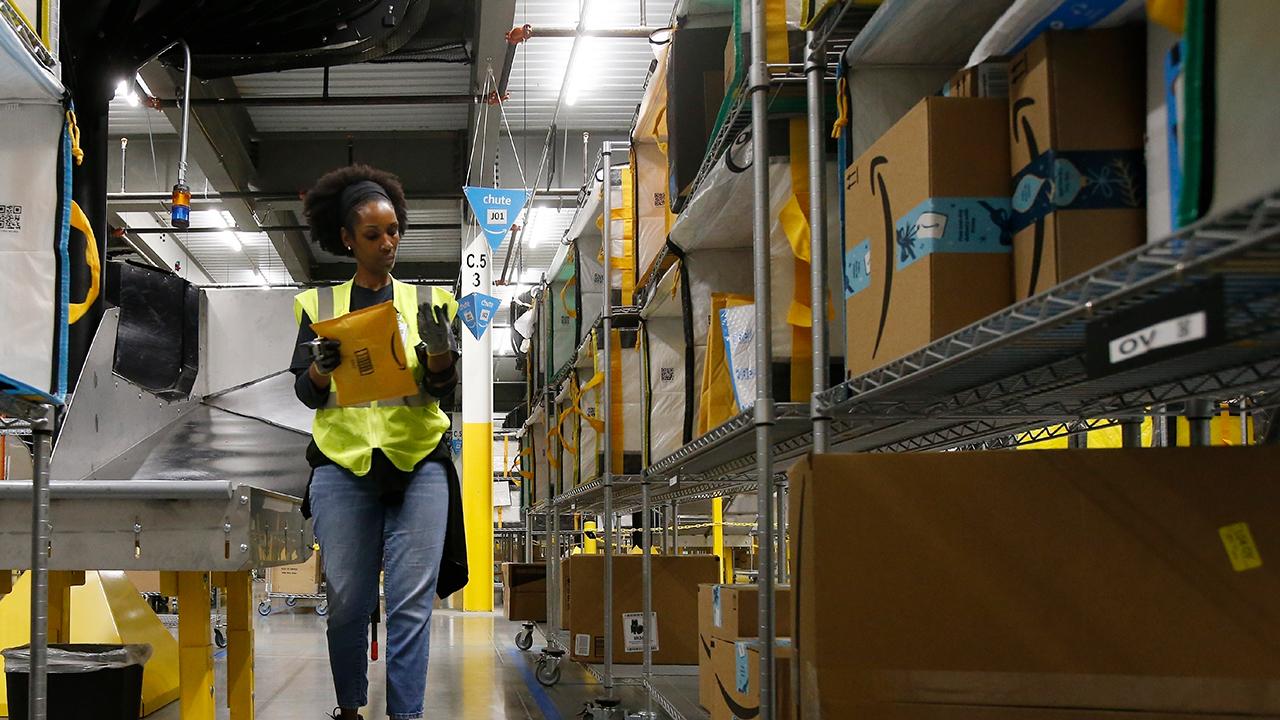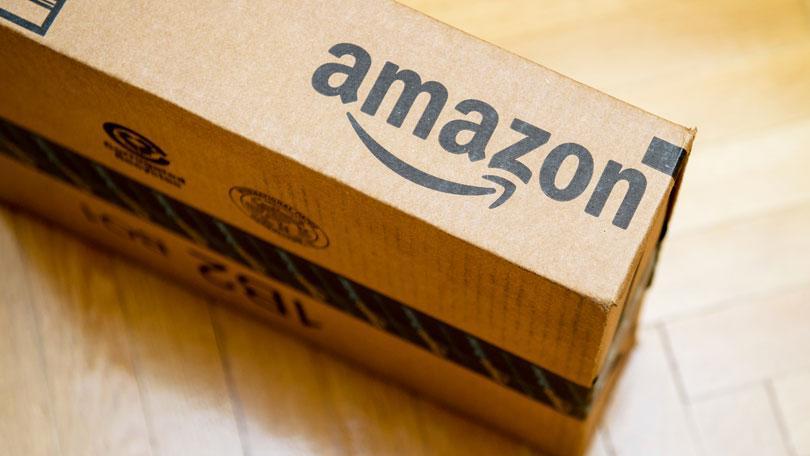Sellers' Amazon loans at risk as company limits warehouses
Suspension of housing non-essential items like apparel, toys endangers some sellers
Some Amazon sellers say the online retailer's abrupt decision to stop receiving non-essential inventory in response to the coronavirus pandemic could strangle the sales they need to make payments on their Amazon loans.
The challenge illustrates the power Amazon has over merchants whose businesses are heavily dependent on its marketplace.
A spokesman for Amazon told Reuters on Thursday that the company is working to provide relief to the selling community. He declined to provide specifics.
AMAZON HALTS GROCERY ORDERS TO RESTOCK AMID SURGING DEMAND
| Ticker | Security | Last | Change | Change % |
|---|---|---|---|---|
| AMZN | AMAZON.COM INC. | 204.86 | +0.07 | +0.03% |
On Tuesday, Amazon said it would receive only vital supplies at its U.S., UK and other European warehouses until April 5, in an effort to save warehouse space for medical and household goods that are in high demand during the global coronavirus outbreak. Amazon is among the retailers racing to keep food and hygienic items in stock and have employees on hand for warehouse work or delivery.
Some sellers worry that the suspension on non-essential items like apparel, toys and outdoor gear could dampen their sales as they are unable to restock items, and further affect their ability to repay their Amazon loans in time.
For Jamison Philippi, an Amazon seller based in Hackensack, New Jersey, toys and video games represent 95% of his Amazon business. But those products now are considered "non-essential" so he cannot restock them in Amazon's warehouses.
KRAFT HEINZ TALKS WITH AMAZON, WALMART DAILY TO SPEED FOOD DELIVERIES
As his inventory runs out, Philippi estimates his income could drop by 75% - affecting his ability to make the roughly $3,500 payment due on his Amazon loan on April 1.
"Not being able to ship things in for three weeks - it's going to sting," Philippi said. Amazon automatically pulls loan payments from the account where he receives his bi-weekly sales payments. If that balance falls short, it comes out of his bank account.
"I'm hoping they suspend that for a month and offer a grace period," said Philippi, who believes Amazon is making decisions that it believes are best for the selling community.
"They control everything, we're just playing in their sandbox," Phillippi said.
LOAN PAYMENT DUE
Launched in late 2011, Amazon's lending program makes loans of $1,000 to over $1 million to qualified sellers, and uses seller's inventory in Amazon warehouses as collateral. Repayment terms are three to 12 months, and interest rates typically range from 6-19.9%.
The move to suspend shipping non-essential products has left sellers unable to restock some of their bestsellers.
Some sellers are in a panic because borrowers can be in default if sales in any 30-day period are less than 50% of the lowest level during the 12 months prior, according to a loan agreement reviewed by Reuters.
"The terms of the loan definitely protect Amazon," said a seller based in New Hampshire, who declined to be named. "At this time I have all of my eggs in the Amazon basket. I owe them more than I owe on my home." His loan payment is just shy of $40,000 per month on a 12-month $500,000 loan.
"We have seen sales fall off a cliff. Shoes and clothing at this time is not what people deem essential,” the seller said. “I understand their business decision. It’s going to upset the supply chain down the road."
Some sellers have voiced their concerns to Amazon but have not heard back about any relief. In a statement to Reuters, Amazon said it is working to determine the best ways to quickly assist its lending clients during the coronavirus crisis.
GET FOX BUSINESS ON THE GO BY CLICKING HERE
"Our selling partners tell us our loans are an ideal way to grow inventory, expand product lines, and reach more customers," the company said.
In other cases, sellers are seeing loan offers from Amazon disappear from their accounts.
Molson Hart, a toy seller, says he had always been offered a $1 million loan by Amazon, based on his $4.5 million in annual sales. As he worries that his popular products may run out of stock in Amazon warehouses, he also found the loan offer was gone this week. While Hart says his business does not rely on Amazon's loan to survive, smaller businesses could face a higher chance of bankruptcy during this time of distress.
"It's obvious that Amazon thinks the risks have skyrocketed," said Joe Kaziukenas, founder of Marketplace Pulse, which tracks data on e-commerce platforms.
"Sellers are worried about their cash flow, and Amazon lending was one of the ways to support that. And now as we've seen in some cases, it's gone," Kaziukenas said.
CLICK HERE TO READ MORE ON FOX BUSINESS





















